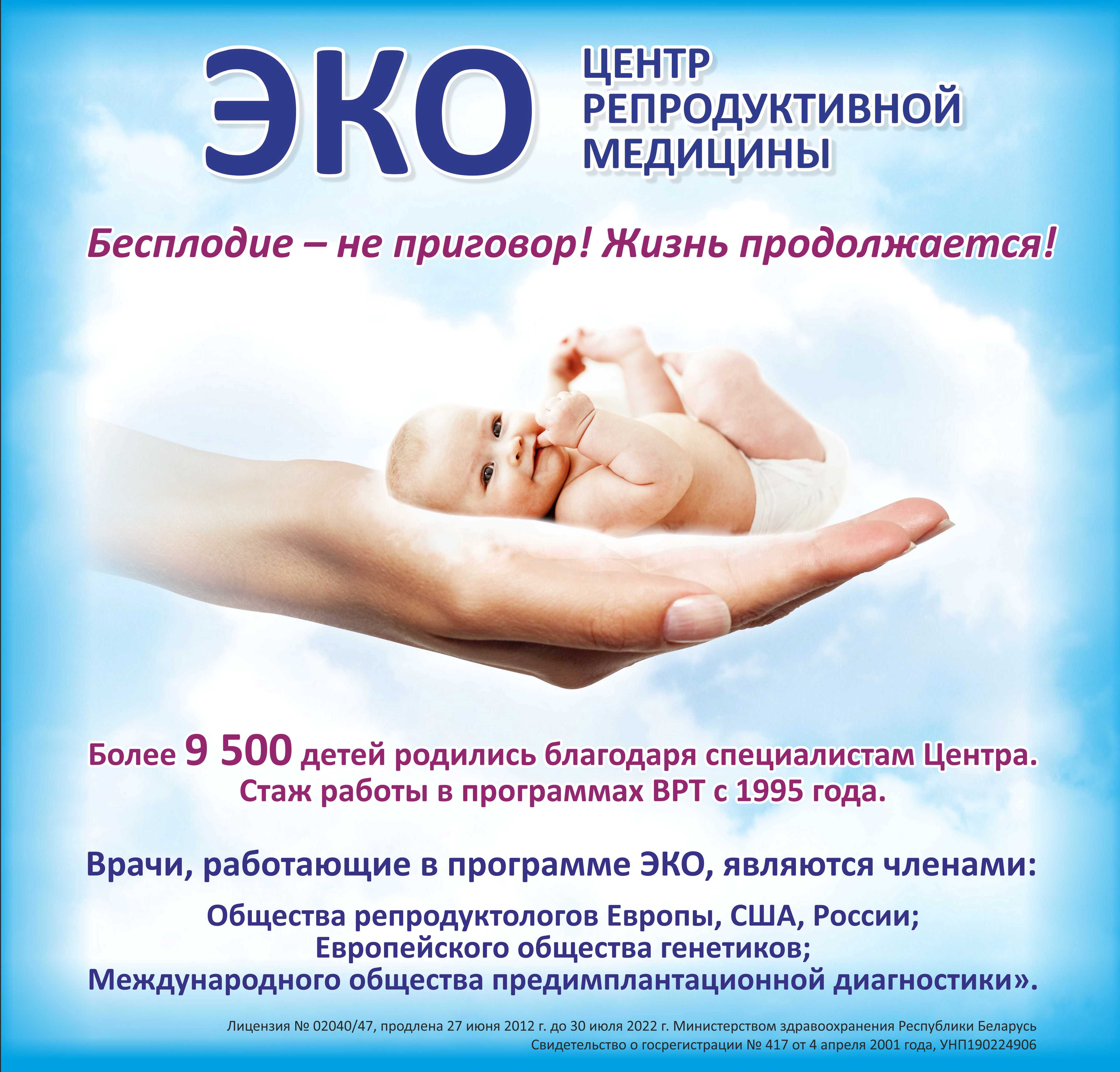Private Unitary Enterprise «Center of Reproductive Medicine»
Examination and treatment of all forms and kinds of female and male sterility and also their combinations. More than 9 700 children were born at our Center due to the treatment of infertility with the application of assisted reproductive technology, and more than 4 thousands — after conservative treatment. These children were born only thanks to the efforts of our specialists. The staff of our Center is represented by 14 physicians of superior expert category, 9 Candidates of Medical Sciences, there are 3 Associate Professors, mid-level health professionals.
Assisted reproductive treatment is carried out only by specialists of superior expert category, Candidates of Medical Sciences, they have been carrying out their successful work in IVF since 1995.
Physicians who carry out IVF are members of the following societies: Society of Fertility Specialists of Europe, USA, Russia; European Society of geneticists; International Society of pre-implantation diagnostics. Our Center has received the following Certificates: Certificate of Quality Management System IQNet, «Russian register», Certificate STB ISO 9001-2015, Certificate STB ISO 9001-2009. It was a milestone event. Firstly, because the Center was the first healthcare establishment in Belarus which has received such a high quality proof. The Center of Reproductive Medicine has become the first one.
Certificate of the system IQNet means recognition by international specialists the quality and value of services rendered by enterprise, establishment, clinic. Association of certification «Russian Register» is the largest and the most well-recognized independent entity on certification of the systems of management, production and personnel in Russia and abroad.

